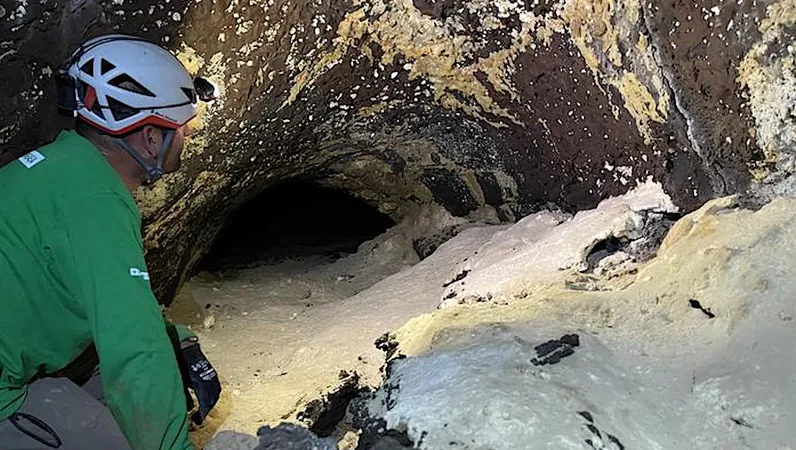
Unveiling the Secrets of Volcanic Caves: A Pathway to Discovering Life on Mars
2024-11-19
Author: Nur
Unveiling the Secrets of Volcanic Caves: A Pathway to Discovering Life on Mars
In an exciting development that merges Earth sciences with space exploration, an international team of researchers has made significant strides in the quest to uncover potential life beyond our planet. By studying lava tubes—natural caves formed from volcanic activity—scientists are gathering vital insights that could reshape our understanding of alien ecosystems, specifically on Mars.
Led by Bogdan P. Onac, a distinguished professor at the University of South Florida, this groundbreaking research brought together skilled experts from Portugal, Spain, and Italy. Their focus was clear: to explore the intriguing parallels between Earth’s volcanic caves and Martian landscapes, which might harbor similar geological features.
Their expedition took them to the Spanish island of Lanzarote, located just off the coast of North Africa, where they meticulously investigated six expansive lava tubes. Some of these formations are so enormous that they have been transformed into unique venues for underground concerts, showcasing nature’s artistry.
One of the most compelling findings from their exploration was the presence of extensive mineral deposits, particularly massive accumulations of gypsum and other sulfates within the La Corona lava tube system. "Although the lava tubes have been known for years, our research is the first to conduct a thorough investigation of the minerals and the microorganisms residing within," Onac stated, highlighting the novelty of their approach.
Published in the peer-reviewed journal *Communications Earth & Environment*, the research utilized cutting-edge molecular, isotopic, and mineralogical techniques to analyze the geological samples collected. The results revealed that the volcanic rock in these lava tubes created conditions that shielded the contained minerals and organic materials from external environmental wear, preserving them as clues to ancient ecosystems.
Among their remarkable discoveries were biosignatures—traces indicating past microbial activity, including calcium and sodium sulfates. This discovery suggests that these caves once harbored living microorganisms, which raises tantalizing questions about similar lifeforms that might exist in the Martian subsurface.
"This research enhances our understanding of both geological and environmental processes on Earth and underscores the potential of lava tubes as havens for microbial life," Onac explained. With Martian lava tubes believed to be comparably sheltered and rich in sulfates, they might hold vital evidence of previous microbial existence, which could significantly inform future strategies for planetary exploration, particularly concerning Mars missions aimed at assessing habitability.
Looking forward, the team is gearing up for additional studies focusing on these volcanic structures, with plans to investigate newly formed lava tubes in Iceland, providing further opportunities for unlocking the mysteries of both our planet and the cosmos.
This groundbreaking research holds promise for future missions to Mars and other celestial bodies, as scientists continue to decode the potential biomarkers hidden in planetary subsurfaces, igniting hopes of discovering extraterrestrial life. Stay tuned for more insights as their work evolves!

 Brasil (PT)
Brasil (PT)
 Canada (EN)
Canada (EN)
 Chile (ES)
Chile (ES)
 España (ES)
España (ES)
 France (FR)
France (FR)
 Hong Kong (EN)
Hong Kong (EN)
 Italia (IT)
Italia (IT)
 日本 (JA)
日本 (JA)
 Magyarország (HU)
Magyarország (HU)
 Norge (NO)
Norge (NO)
 Polska (PL)
Polska (PL)
 Schweiz (DE)
Schweiz (DE)
 Singapore (EN)
Singapore (EN)
 Sverige (SV)
Sverige (SV)
 Suomi (FI)
Suomi (FI)
 Türkiye (TR)
Türkiye (TR)